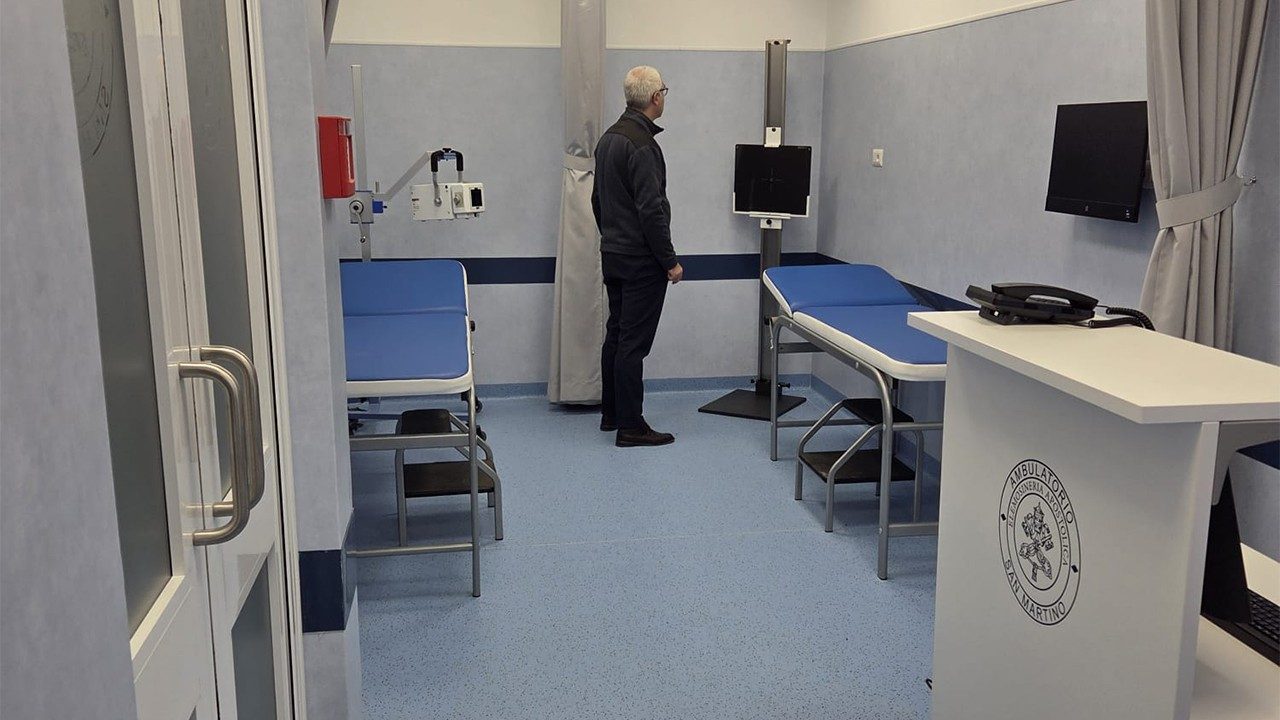The opening of the Apostolic Almoner’s new facility under the Colonnade of St Peter’s Basilica expands healthcare services for the poor, including a radiology unit to quickly diagnose the most common illnesses affecting people living on the streets.
Vatican News
Pope Leo inaugurated the San Martino Outpatient Clinic located beneath St. Peter’s Colonnade on 14 November. This came just ten years after the opening of the “Mother of Mercy” Clinic and ahead of the World Day of the Poor on Sunday, 16 November.
A statement from the Dicastery for the Service of Charity explained the new clinic consists of two rooms equipped with state-of-the-art medical technology and a radiology department. A next-generation X-ray machine will make it possible to diagnose quickly and accurately cases of pneumonia, bone fractures, tumors, degenerative diseases, kidney stones, and intestinal obstructions—conditions often neglected among those living in poverty.
These early diagnoses will allow doctors to start appropriate treatment as soon as possible, leading to a better quality of life for those who have nothing.
Seeing Jesus in the poor
The new clinic was made possible through the collaboration with the Directorate of Health and Hygiene of the Vatican City State Governorate and offers comprehensive care for those seeking medical assistance.
The two clinics are places of welcome and healing, restoring dignity to the poor who come to Cardinal Konrad Krajewski’s office as the Papal Almoner. He stressed that in those seeking aid are people “in whom we do not see a homeless person or a pauper, but the face of Jesus.”
Free healthcare services
The San Martino Clinic will work alongside the mother of Mercy Clinic, which offers free daily healthcare to those living in poverty, marginalization, or hardship—led by the principles of the Gospel and the Church’s Social Teaching.
The Apostolic Almoner’s outpatient clinic provides more than 2,000 free healthcare services every month, thanks to 120 volunteer doctors, nurses, and healthcare technicians. Some 10,000 people from about 139 different countries have received care. To date, 102,060 medical services have been offered completely free to those most in need and vulnerable, together with 141,200 packages of medication.
At the two clinics, those in need will be able to receive general and specialist medical visits, dental care, blood tests, and radiology exams. Moreover, services like removable dental prosthetics, eyeglasses, and hearing aids will be offered. Prescribed medications—donated and always completely free—will be placed directly into the hands of those who need them.


